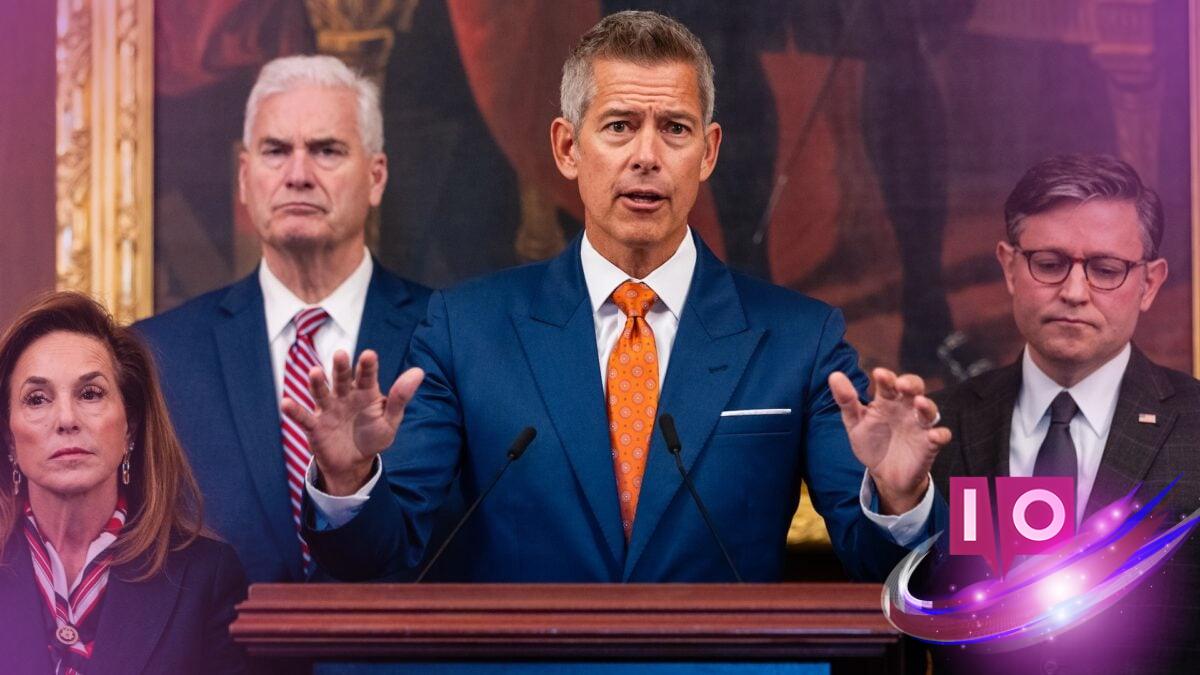If you’re a frequent traveler in the U.S., you might want to brace yourself for potential flight delays in the coming days and weeks. Recent reports indicate that approximately 6.6% of U.S. flights were delayed on Thursday due to staffing shortages among air traffic controllers, according to Reuters. While this is slightly above the average delay rate of 5%, historical precedents suggest the situation could rapidly deteriorate, as previous government shutdowns have seen delays spike to a staggering 53%.
Transportation Secretary Sean Duffy recently addressed these rising concerns during a press conference in Philadelphia. He highlighted the growing plight of air traffic controllers, who, like many federal employees, are currently operating without pay due to the ongoing government shutdown that began on October 1.
Controllers received a paycheck about 10 days ago, which covered roughly 90% of their usual earnings, attributed to work done in September. However, paychecks due this Tuesday will be for $0. This unfortunate reality could lead more air traffic controllers to call in sick—a trend observed during earlier shutdowns as frustration mounts over unpaid work.
“As I’ve talked to controllers, there’s great frustration,” Duffy mentioned. “There’s anxiety because when you expect a paycheck, you plan your expenses: your mortgage, car payments, food.”
Many controllers are also burdened by additional childcare costs. Without a dependable paycheck, the stress levels are significantly heightened, a situation that Duffy considers unacceptable.
The political landscape complicates matters further. While Republicans currently hold majorities in both the Senate and House, they require Democratic support to reopen the government. Democrats insist on addressing substantial healthcare cuts made during the summer. The so-called Big Beautiful Bill, championed by President Donald Trump, offers major tax incentives that benefit high earners—estimated to provide around $114 billion in tax cuts to those earning over $1 million per year by 2027.
During the press conference, Duffy also reiterated baseless claims that Democrats are attempting to fund healthcare for “illegal immigrants.” In reality, Democrats aim to restore funding for Medicaid, which includes 1.4 million legal immigrants at risk of losing their coverage. As health care becomes a pressing issue for millions, new reports from the Washington Post indicate that average Obamacare premiums are projected to soar by 30% next year, impacting 17 million Americans and driving up costs for employer-provided plans as well.
Unfortunately, Republicans have shown little willingness to negotiate on the shutdown and have only promised to address healthcare conditions after the government is reopened. Given the past behavior of the Trump administration, many Democrats are understandably skeptical of these claims.
As Duffy pointed out, the U.S. is already facing a shortage of air traffic controllers, estimated at 2,000 to 3,000 too few. Such disruptions make the recruitment and retention of future controllers even more challenging; job stability and timely remuneration are key factors for potential applicants. Duffy has also warned that if controller sick leave escalates, he may need to consider dismissing about 10% of the workforce.
Although he advised against controllers seeking secondary jobs for financial stability—like driving for Uber—many of them may be left with little choice while working without pay for the government.
Importantly, Duffy reassured the public that safety remains a top priority at America’s airports. “If our controllers are stressed and less effective,” he stated, “it will reduce the number of airplanes that can take off and land safely, resulting in delays.”
If the shutdown continues, travelers should indeed prepare for significant delays that could affect future plans.
What is the current status of U.S. flight delays? As of now, about 6.6% of U.S. flights are delayed, with the potential for further increases if the government shutdown continues.
How does the government shutdown affect air traffic controllers? Air traffic controllers are currently working without pay due to the shutdown, leading to increased frustration and potential sick leave.
Will air traffic safety be compromised during this shutdown? While Duffy expressed confidence in safety protocols, the stress on controllers could lead to reduced capacity and increased delays in flights.
How are healthcare issues related to the government shutdown? Democrats and Republicans are at odds over healthcare funding, impacting the negotiations to end the shutdown.
What should travelers expect if the shutdown persists? Travelers may see a rise in flight delays and disruptions as air traffic controllers struggle under financial and emotional strain.
As we navigate through these uncertain times, it’s vital to stay informed about the ongoing situation. If you’d like to read more about travel updates and related topics, feel free to explore further content on Moyens I/O.
